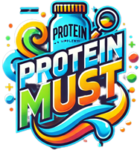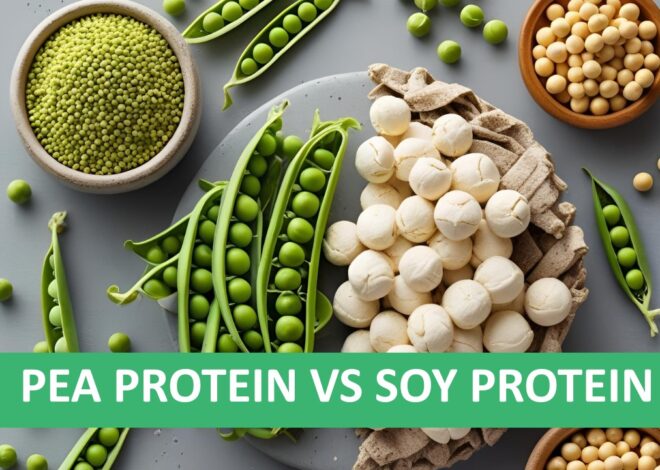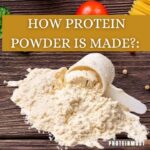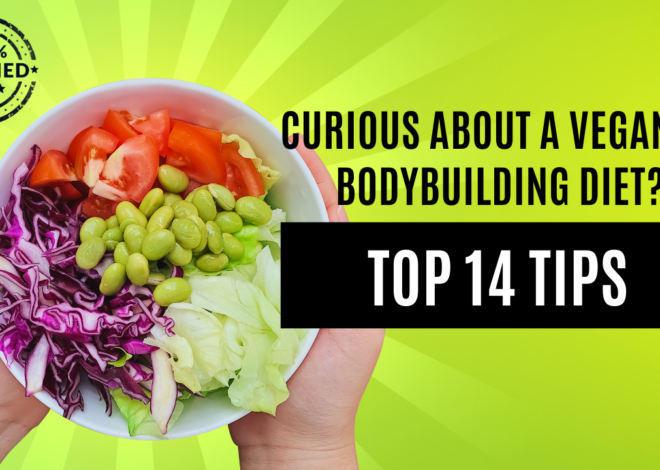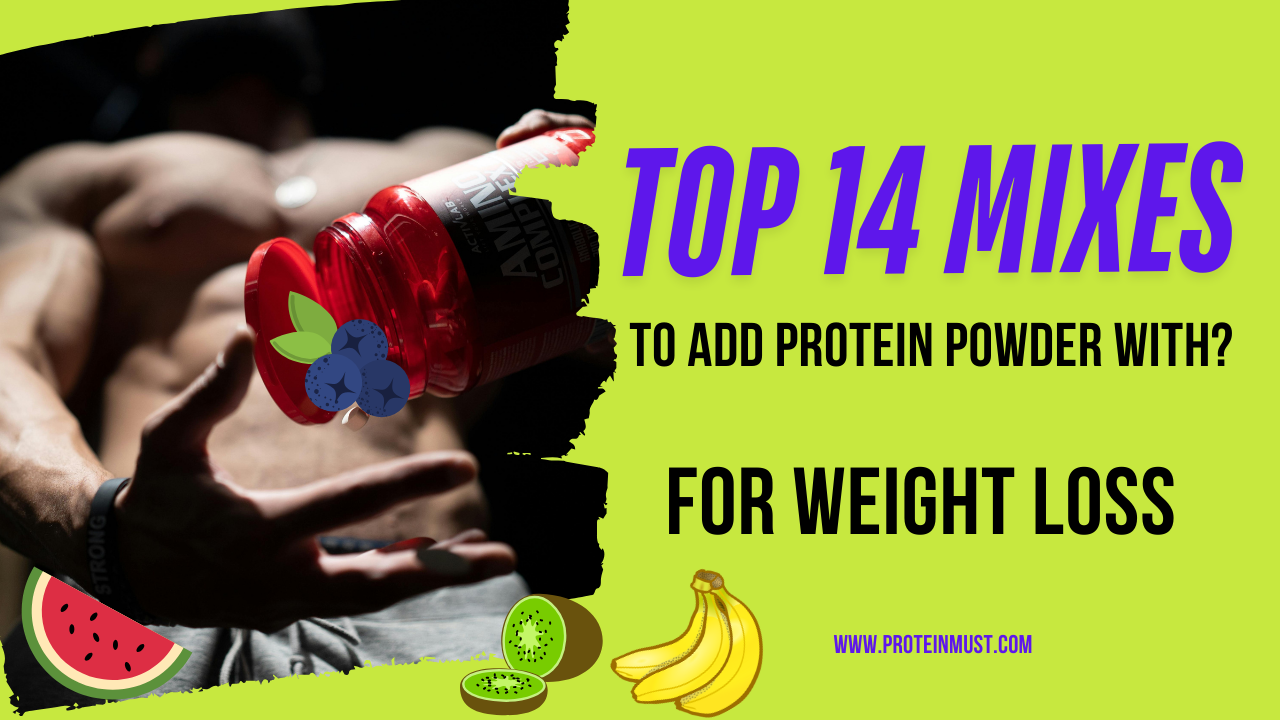
Surprising Protein Powder Combos for Weight Loss Success
Growing up, we have always seen the food pyramid as the ultimate guide to nutrition. It showed grains at the bottom, followed by fruits, vegetables, and other food groups in layers. But over the years, our understanding of healthy eating has evolved. The International Society of Sports Nutrition now recommends a daily intake of 1.4 to 2.0 grams of protein per kilogram of body weight for those trying to lose weight.. At the gym, we notice many people drink their protein powder with different liquids. Some prefer it mixed in water, while others add fruits for flavor. If you train regularly, getting the right nutrients helps you build and maintain muscle. Studies show consuming protein right before or right after exercise provides the most benefit. In this article we will explore the best low-calorie protein powder mixes for weight loss to make your fitness journey easier
Weight Loss Secrets: What to Mix with Protein Powder?
There was a time when protein wasn’t a big part of our dietary recommendations. One reason was that protein sources used to be expensive, while grains were cheap and easy to find. But as access to protein improved, experts began updating protein recommendations. Many now turn to protein shakes to supplement their daily intake and help lose weight. If you’re considering protein powder mixes for weight loss . A good amount of protein can boost your metabolism, reduce appetite, and help lose body fat while keeping muscle intact. However, the wrong choices could derail your progress and even lead to weight gain. The key is choosing low-calorie options rich in calcium, iron, and magnesium. Consuming the right protein shakes can keep you full longer, support lean muscle, and improve your metabolism. Also explore Unlock the Secret to Gaining Weight With a Fast Metabolism.

What to mix protein powder with for weight loss?
To maximize weight loss with protein powder, choose low-calorie protein powder mixes for weight loss. Water is the best option for keeping calories to a minimum. Unsweetened almond milk or other plant-based milks add creaminess without excess calories. Mix with black coffee for an energy boost and fat-burning benefits, or try green tea for its metabolism-enhancing properties. Smoothies with leafy greens, berries, or a small portion of avocado can add nutrients and fiber while staying weight-loss friendly. Avoid sugary juices or full-fat dairy to keep calorie intake low. Always check your protein powder’s nutritional profile and stick to healthy, whole-food additions for optimal results.
Importance of Protein for Fitness Goals:
Following are health benefits of protein to achieve your fitness target
Enhances overall quality of life with or without workout:
Protein plays a vital role in maintaining muscle strength, supporting metabolic function, and promoting overall well-being, making daily activities easier and improving long-term health with or without workout.
Aids in weight loss and metabolism:
Increasing muscle mass through protein consumption boosts your resting metabolic rate, allowing your body to burn more calories throughout the day, even when not actively exercising.
Provides sustained energy and satiety:
Protein takes longer to digest than carbohydrates, keeping you fuller for longer periods, reducing cravings, and preventing energy crashes, which helps maintain steady energy levels throughout the day.
Strengthens the immune system:
Protein provides essential amino acids that aid in the production of immune cells, such as B-cells and T-cells, which help defend the body against infections and diseases.
Supports strength, mobility, and independence:
A protein-rich diet helps maintain muscle mass and bone health, reducing the risk of falls, injuries, and age-related muscle loss, ultimately promoting long-term mobility and self-sufficiency.
Expert Opinion regarding Protein & weight management:
Appetite Control
- Protein shakes help reduce hunger and appetite by increasing feelings of fullness.
- Fullness hormones like GLP-1 and PYY are released, promoting satiety.
- Higher protein intake is linked to less hunger.
- A study showed that older women on a high-protein breakfast consumed fewer calories compared to those on a low-protein breakfast or no breakfast.
- A meta-analysis confirmed that body weight, eating behavior, and health issues influence fullness sensations.
- Ingesting over 35 grams of protein reduces appetite and increases feelings of satiety.
Metabolism Support
- A high-protein diet supports a healthy metabolism and lean muscle when combined with strength training.
- Muscle growth increases energy production.
- Extreme calorie restriction can cause muscle loss, fat loss, and a slow metabolism.
- A 6-week study found participants on a calorie-restricted plan gained 2.4 lb (1.1 kg) more muscle mass and lost 2.9 lb (1.3 kg) more fat.
- Protein has a higher thermic effect, meaning it burns more energy during digestion, boosting metabolism.
Fat Loss
- High-protein diets are linked to belly fat reduction.
- A 14-week study found that those on a high-protein, calorie-restricted diet lost 1.7 times more body fat than those on a high-carb diet.
- In a 12-week study, participants with moderate weight but high body fat percentage:
- Lost an additional 3 lb (1.4 kg).
- Reduced waist circumference by 2.2 centimeters.
- A 2020 review suggests high-protein diets help minimize weight regain in the first 3–12 months after weight loss.
Protein for Long-Term Weight Management
- Protein shakes support muscle mass and metabolism, helping prevent weight regain.
- A 2015 review found that consuming 25–30 g of protein per meal improves weight loss and management.
- Research suggests high-protein diets reduce short-term weight regain when paired with a healthy lifestyle and whole foods.
Top 14 Protein Powder Mixes for weight loss
Following are top 14 choices for protein powder mixes for weight loss:
1.Water
The simplest and most effective option for keeping your shake low in calories. It allows the protein to be absorbed quickly without adding extra sugars, fats, or artificial ingredients that could slow weight loss.
2.Unsweetened almond milk, coconut milk, or cashew milk:
These plant-based milk alternatives provide a creamy texture with fewer calories than regular dairy milk. They are naturally low in sugar and fat, making them a great choice for a satisfying yet weight-friendly protein shake.
3.Black coffee :
A great pre-workout or morning shake option, black coffee enhances energy levels and may help increase fat oxidation, which can support weight loss. Caffeine has thermogenic properties that can slightly boost metabolism, making it a powerful addition to your protein shake. Its is one of the best protein powder mixes for weight loss

4.Green tea:
Known for its metabolism-boosting and fat-burning properties, green tea is rich in antioxidants called catechins, which can help enhance the effects of weight loss when combined with protein. It provides a light, refreshing taste and is a great alternative to water.
5.Herbal tea (e.g., peppermint or ginger tea):
Peppermint tea aids digestion and reduces bloating, while ginger tea has anti-inflammatory and metabolism-boosting properties. Both can be great low-calorie mixers that add flavor and additional health benefits to your shake. It is one of the best protein powder mixes for weight loss.

6.Smoothies with leafy greens (spinach, kale, or arugula):
Adding a handful of leafy greens boosts fiber, vitamins, and minerals while keeping your shake low in calories. Greens also support digestion and help regulate blood sugar levels, which can be beneficial for weight management.
7.Berries (strawberries, blueberries, raspberries):
Naturally sweet and packed with antioxidants, berries add flavor without excessive sugar. They provide fiber, which helps you stay full longer, and are lower in calories compared to other fruits.
8.A small portion of avocado:
Adding a quarter of an avocado provides healthy monounsaturated fats that promote satiety and give your shake a rich, creamy texture. Avocados also support heart health and help maintain stable energy levels.
9.Chia seeds or flaxseeds :
These tiny seeds are high in fiber and omega-3 fatty acids, which help keep you full for longer. They also support digestion and can help reduce inflammation, making them a great nutrient-dense addition to a weight-loss-friendly shake.
10.Unsweetened Greek yogurt:
A great way to boost protein content while adding a thick and creamy texture. Greek yogurt contains probiotics that support gut health and digestion, but it’s important to choose unsweetened, low-fat, or non-fat varieties to avoid excess calories.
11.Cinnamon or cocoa powder:
Natural flavor enhancers that add depth to your shake without extra sugar or calories. Cinnamon has potential metabolism-boosting effects, while cocoa powder is rich in antioxidants and can help curb sweet cravings.
12.Unsweetened coconut water:
A hydrating, low-calorie option that provides natural electrolytes. Coconut water can be a good choice after workouts to replenish lost minerals while keeping your shake light and refreshing.
13.Plain kefir (low-fat or non-fat) :
A fermented dairy drink rich in probiotics, kefir supports gut health, which plays a role in digestion and weight management. Opt for unsweetened versions to avoid unnecessary sugar.
14.Cucumber or lemon water:
A refreshing way to add flavor to your shake while aiding digestion and hydration. Lemon adds vitamin C and can support metabolism, while cucumber is naturally hydrating and low in calories.
Recommended Protein Intake:
- Sedentary individuals: 0.8 g/kg of body weight (RDA)
- Active individuals: 1.2–2.0 g/kg
- Athletes & Bodybuilders: 1.6–2.4 g/kg
- Older Adults: 1.0–1.2 g/kg to prevent muscle loss
- Weight Loss & Muscle Gain: 1.6–2.2 g/kg
Which Type of Protein Powder Is Best for Weight Loss?
When looking to lose weight, choosing the right protein powders can make a difference. Many people opt for plant-based options because they are natural, vegan, and often lower in calories, sugar, and fat. Some great sources include soy, hemp, brown rice, and peas, which provide an ideal balance of nutrients. A great example is Tropeaka Lean Protein, known for being effective and delivering high value. These protein powders are designed to be high in protein, making them a smart choice for those wanting to stay full longer.
Pea Protein:
Unlike dairy-based alternatives, plant-based options come from a variety of sources, ensuring a total nutritional boost. Many people prefer them because they help in making better food choices while keeping energy levels steady. If you’re trying to lose weight, these protein powders can be a great addition to your diet. They are generally easier to digest and can provide long-lasting benefits.
Pea protein is a plant-based protein powder that supports muscle growth and recovery just as well as milk-based alternatives. When blended with rice protein powder, like Tropeaka Lean Protein, it forms a complete amino acid profile, making it highly effective for achieving fitness goals. What sets it apart is that it is hypoallergenic and easily digestible, helping the human body to synthesize protein efficiently. Another advantage is its balanced absorption rate—it absorbs slower than whey but faster than casein, providing a steady supply of nutrients. Additionally, it helps with iron deficiencies since it contains good levels of iron. Made from yellow split peas, this protein powder is a popular choice for those prioritizing healthy choices, including vegetarians, vegans, and individuals with allergies to dairy products or eggs.

Hemp Protein
Hemp protein powder is a plant-based supplement derived from the seeds of the hemp plant. It is packed with fiber and omega-3 fatty acids, making it a great option for weight loss. Additionally, it provides essential antioxidants, minerals, and heart-healthy unsaturated fats, supporting overall well-being. Although beneficial, this protein powder is not a complete protein because it has low amounts of essential amino acids like lysine and leucine. However, it can still be an excellent addition to a balanced diet, especially when combined with other proteins.

Even so, it’s a good choice for vegetarians or vegans looking to make healthy choices.
Rice Protein
Rice protein powder comes from brown rice and provides all the essential amino acids your body needs. However, it is low in lysine, making it an incomplete protein. Pairing it with pea protein powder or a healthy eating plan can help achieve better nutritional balance while supporting fitness goals. Since it’s hypoallergenic, it’s a great option for those avoiding dairy and other animal products. A small study on college-aged, resistance-trained male participants found that rice protein improved recovery and reduced muscle soreness after exercise, working as well as whey protein. Both groups showed similar improvements in strength, power, muscle mass, and lean body mass. Additionally, a protein-filled breakfast can boost metabolism and help it work faster for better energy throughout the day.

Best Time to Take Protein Powder for Maximum Benefits
For Weight Loss:
- Consume protein powder in the morning to fuel your body.
- Protein takes longer to digest than carbohydrates, helping you feel fuller and preventing cravings.
- A protein-filled breakfast boosts metabolism, making it work faster.
- To avoid unhealthy snacking, take protein between breakfast and lunch or between lunch and dinner.
For Building Muscle or Toning:
- Take protein powder before a workout to provide energy for muscle protein synthesis.
- Consume protein after a workout to aid recovery and rebuild muscles.
- Helps prevent muscle breakdown and controls hunger.
General Advice:
- Pair protein intake with a healthy diet and regular exercise for optimal results.
- Protein can be consumed with meals or as a supplement, depending on your preference.
Protein Powder Safety and Guidelines
Following instructions should be followed as safety guidelines:
General Safety:
- Protein powders are safe for most people when used in moderation alongside a healthy, balanced diet.
- Consuming protein powders daily can support weight loss, but whole foods should still be prioritized for overall health.
- Developing healthy habits is crucial—eating too much protein without exercise can lead to weight gain.
- Excess protein is converted into fat and stored in fat cells, making balance important.
Potential Side Effects:
- Overuse of protein powder can cause digestive issues like bloating and constipation.
- Those with underlying health conditions or on medications that may interact with protein powders should consult a doctor.
Special Considerations:
- Pregnant women and young children should avoid protein powders altogether.
- Choose high-quality protein powders free from additives for optimal health benefits.
Best Approach:
- For safety and effectiveness, it’s advisable to seek guidance from a dietitian.
Key Takeaways:
Protein powder is a tasty, healthy, and effective supplement that supports various dietary goals. By experimenting with different ingredients, liquids, and flavors, you can create a protein shake that meets your needs. Given the shift in dietary guidelines, increasing daily protein intake is beneficial for most people. Achieving your fitness goals requires a balanced diet, and incorporating diverse protein sources can make reaching these goals easier. While protein powder helps with weight loss, appetite control, and muscle growth, not all options provide essential amino acids. Choosing a high-protein, low-sugar formula is crucial. However, protein shakes alone won’t guarantee results—regular exercise and a healthy diet remain essential. For personalized guidance, consult a doctor or dietitian. Whether through food sources or supplements, optimizing protein intake can aid in weight management, muscle preservation, and metabolism support for long-term health.
